40 cow digestive system diagram
In the beginning, there was Eohippus. The proto-horse. It was a small hooved animal about the size of a dog, and it ate grass. It was a simple creature, and in my (factual) opinion it represents the last time that the Horse lineage was untainted by sin. Now, it is worth noting that life was not easy for this proto-horse, in fact life for early hooved mammals was so difficult, that some of them said "fuck that" and moonwalked back into the ocean to become cetaceans (Whales and Dolphins). That's r...
In the beginning, there was Eohippus. The proto-horse. It was a small hooved animal about the size of a dog, and it ate grass. It was a simple creature, and in my (factual) opinion it represents the last time that the Horse lineage was untainted by sin. Now, it is worth noting that life was not easy for this proto-horse, in fact life for early hooved mammals was so difficult, that some of them said "fuck that" and moonwalked back into the ocean to become cetaceans (Whales and Dolphins). That's r...
FIGURE 3. A basic diagram of the digestive system of a cow. Feed conversion and rate of gain in a ruminant are strongly affected by the type and number of microorganisms in the rumen. The rumen must contain the appropriate proportions of cer-tain types of microorganisms to maximize productivity. For example, it is believed that proto- zoa can have a negative impact on protein …

Cow digestive system diagram
Horses. Dear god, horses. First off, horses are obligate nasal breathers. If our noses are stuffed up we can breathe through our mouths. If our pets' noses are stuffed up (except for rabbits, who are also really fragile but unlike horses aren't stuck having only one baby a year) they can breathe through their mouths. If a horse can't breathe through its nose, it will suffocate and die. Horse eyes are exquisitely sensitive to steroids. Most animal eyes are, except for cows because cows are tank...
18.08.2021 · Exploring how a cow digests its food. Cows have a very different digestive system than people, and this allows them to thrive on a menu predominantly made up of grass.
**From Merriam Webster-** ## The Difference Between Hypothesis and Theory A [hypothesis](https://www.merriam-webster.com/dictionary/hypothesis) is an assumption, an idea that is proposed for the sake of argument so that it can be tested to see if it might be true. In the scientific method, the hypothesis is constructed before any applicable research has been done, apart from a basic background review. You ask a question, read up on what has been studied before, and then form a hypothesis. A ...
Cow digestive system diagram.
28.07.2021 · The digestive system of a cow consists of the mouth, lips, esophagus, pharynx, stomach, small and large intestine, and some accessory digestive glands. In addition, the organs from the respiratory system of a cow – consist of the larynx, trachea, and lung. Digestive organs of a cow In a cow, the lips are thick and comparatively immobile. The ...
In the beginning, there was Eohippus. The proto-horse. It was a small hooved animal about the size of a dog, and it ate grass. It was a simple creature, and in my (factual) opinion it represents the last time that the Horse lineage was untainted by sin. Now, it is worth noting that life was not easy for this proto-horse, in fact life for early hooved mammals was so difficult, that some of them said "fuck that" and moonwalked back into the ocean to become cetaceans (Whales and Dolphins). That's r...
Defecation (or defaecation) is the final act of digestion, by which organisms eliminate a solid, semisolid, or liquid waste material known as feces from the digestive tract via the anus.The act is known by a variety of terms ranging from the common, like pooping, to the technical, i.e. bowel movement.There are too many colloquial terms to mention.
Nov 23, 2012 · A cow briefly chews food as she eats, breaking it into smaller particles. As she chews, digestive enzymes in her saliva are mixed with the food before it passes down the esophagus into the reticulum and rumen. ( Figure 1 shows the ruminant digestive tract in comparison to the monogastric digestive system).
as digestive tract muscles contract. The mixing action helps expose food to microbial action and pass digesta through the system. Rumen Microbes. Rumen bacteria have been classified according to the type of food they utilize or the end products they produce. Included are bacteria which digest cellulose, hemicellulose, starch, sugar,
dairy cattle (ruminants) in a way that is appropriate to their digestive system. (a) Complete the table to show the names and functions of stomach compartments in an adult cow.
Oct 10, 2021 · 2 Simplified Schematic Diagram Of The Ruminant Digestive Tract The Download Scientific Diagram Animal Science Animal Medicine Cow Digestive System. We Leanred About The Digestive System And How It Worked In Cows And Other Animals Cow Digestive System Ruminant Sheep Breeds. Pin By Klaysculpture On Anatomy Cow Skeleton Anatomy House Design.
The gastrointestinal tract (GI tract, GIT, digestive tract, digestion tract, alimentary canal) is the tract from the mouth to the anus which includes all the organs of the digestive system in humans and other animals.Food taken in through the mouth is digested to extract nutrients and absorb energy, and the waste expelled as feces.The mouth, esophagus, stomach and intestines are …
Denru are a race of large minotaurs with wide leathery bat-like wings. They are 7 feet tall on average with broad shoulders and a prominent chest, which contains the muscles for their arms and wings, and houses a large pair of lungs. Denru have generally bovine heads but they have forward facing eyes, prominent curved horns on both genders, and of course the brain capacity of any other sentient person in Caelmar and humanoid vocal chords that allow for a wide array of sounds for words and songs,...
**From Merriam Webster-** ## The Difference Between Hypothesis and Theory A [hypothesis](https://www.merriam-webster.com/dictionary/hypothesis) is an assumption, an idea that is proposed for the sake of argument so that it can be tested to see if it might be true. In the scientific method, the hypothesis is constructed before any applicable research has been done, apart from a basic background review. You ask a question, read up on what has been studied before, and then form a hypothesis. A ...
Welcome to the Whitman College Biology Department's Virtual Pig Dissection (VPD)! This site is designed as a supplement to laboratory dissections exploring introductory mammalian anatomy and physiology — it is basic and many details have been omitted for clarity.
diagram). As intake capacity increases, the cow will gradually reach peak intake of 16-18kg of grass dry matter. Rule of thumb • An increase of 1% in grass digestibility will increase dry matter intake by 0.3-0.4kg DM and milk yield by 0.25 litres. 204 34 chapter “ “ Feeding the Dairy Cow Key fact Energy, not protein or minerals, is the most limiting nutrient in dairy production systems.
A study published in 2019 found that the type and amount of methane-producing bacteria found in a cow’s stomach is related to its genetic makeup. Knowing this, scientists can breed cows that have less of these bacteria in their stomachs. This will eventually create a type of genetically-modified cow that produces less methane! Did you know?
Man, dogs, poultry and swine have simple or monogastric stomachs (see Figure 1). The monogastric stomach is a pouch-like structure containing glands which secrete hydrochloric acid and digestive enzymes. Monogastric animals do not produce enzymes capable of breaking down cellulose, the main source of energy in forages. Forage consuming species, such as cattle and sheep, have intestinal differences which enable them to digest large amounts of fiberous material. In cattle and sheep, rumen microbes supply the digestive enzymes necessary for the breakdown of plant cellulose and hemicellulose. The cow has the stomach volume and properties necessary to assist with the microbial digestion. The ruminant digestive tract and the ruminant stomach are shown in Figure 1. The ruminant stomach is divided into four compartments: the rumen, reticulum, omasum and abomasum. Digesta can flow freely between the first two compartments, the rumen and reticulum. The reticulo-rumen contains more than 30 per...
29.05.2021 · Cat skeleton anatomy labeled diagram. Now, I will show you all the bones from the cat skeleton with a diagram. If you find any mistakes in this cat anatomy labeled diagram, please let me know. I hope this cat skeletal system anatomy labeled diagram might help you understand and identify all the cat’s bones.
**From Merriam Webster-** ## The Difference Between Hypothesis and Theory A [hypothesis](https://www.merriam-webster.com/dictionary/hypothesis) is an assumption, an idea that is proposed for the sake of argument so that it can be tested to see if it might be true. In the scientific method, the hypothesis is constructed before any applicable research has been done, apart from a basic background review. You ask a question, read up on what has been studied before, and then form a hypothesis. A ...
The cow’s digestive tract. The cow's digestive tract consists of the following. Mouth. Esophagus. A four-compartment stomach, which includes. The rumen (paunch) The reticulum (“honeycomb”) The omasum (“manyplies”) The abomasum (“true stomach”)
In the beginning, there was Eohippus. The proto-horse. It was a small hooved animal about the size of a dog, and it ate grass. It was a simple creature, and in my (factual) opinion it represents the last time that the Horse lineage was untainted by sin. Now, it is worth noting that life was not easy for this proto-horse, in fact life for early hooved mammals was so difficult, that some of them said "fuck that" and moonwalked back into the ocean to become cetaceans (Whales and Dolphins). That's r...






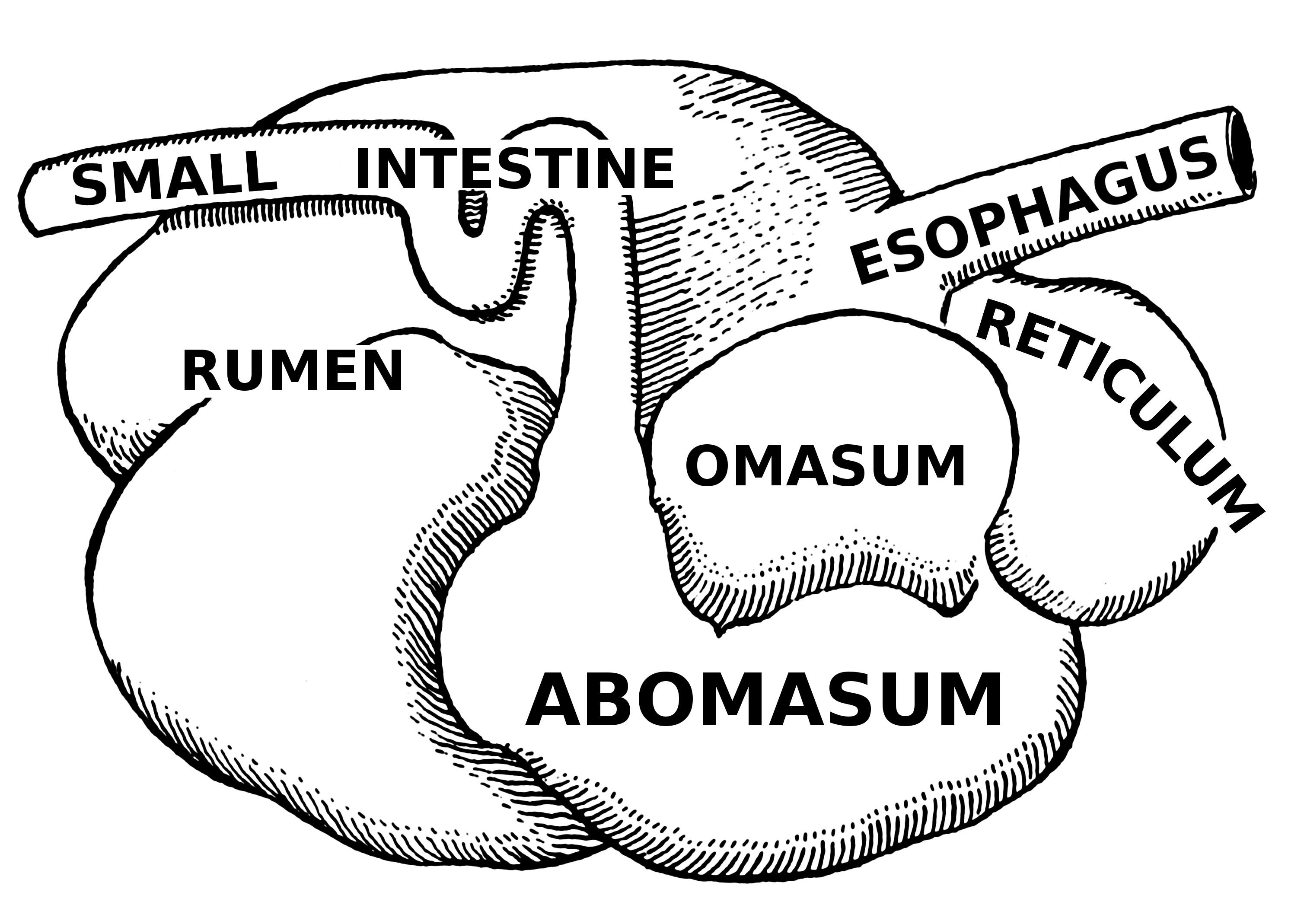







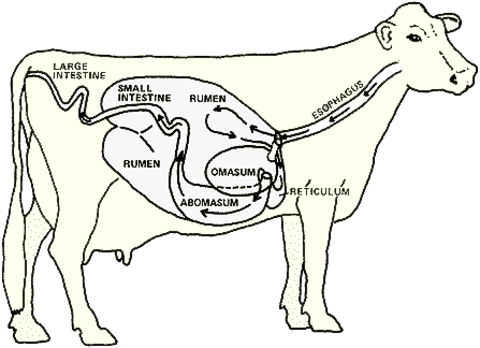








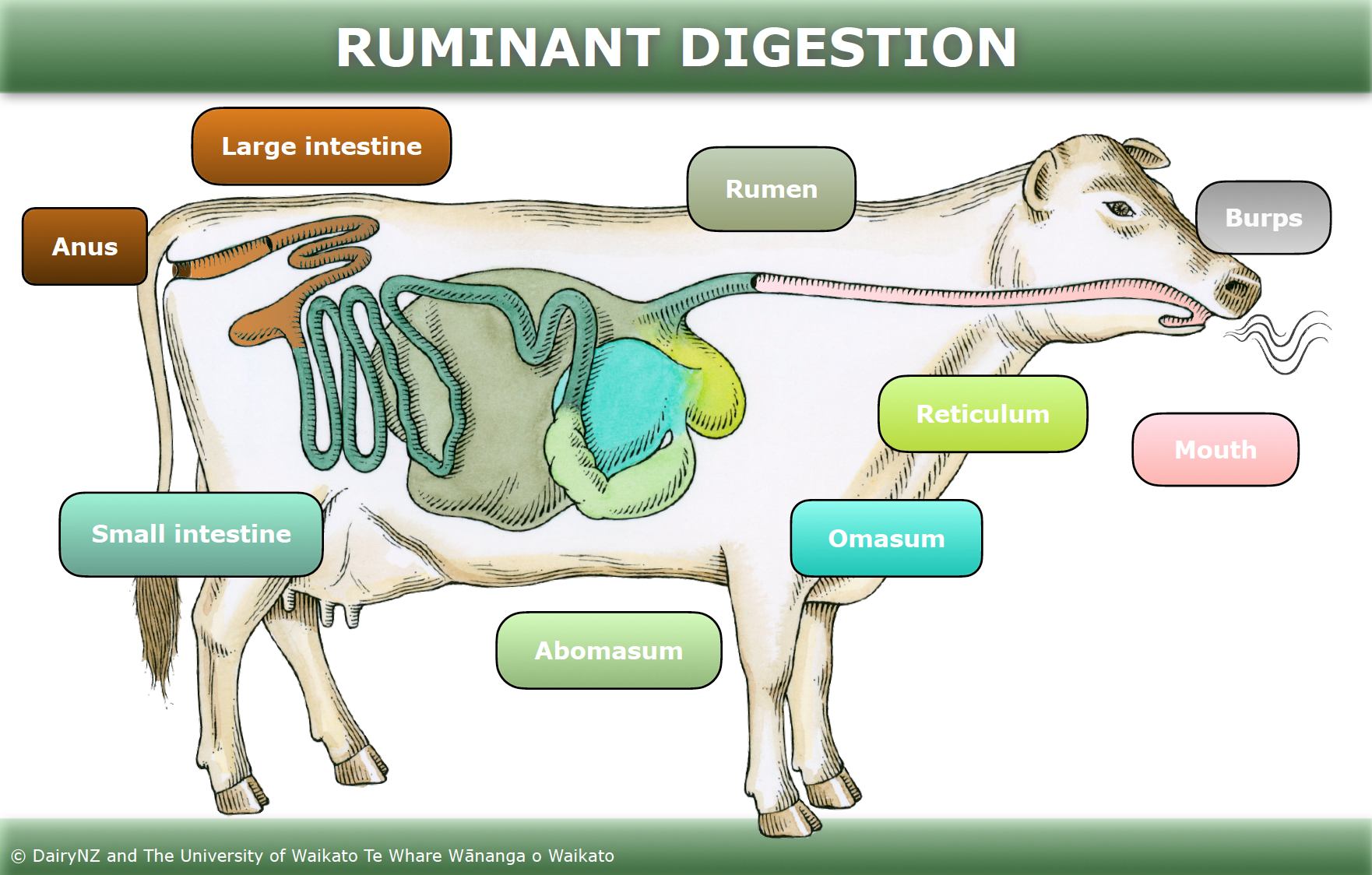
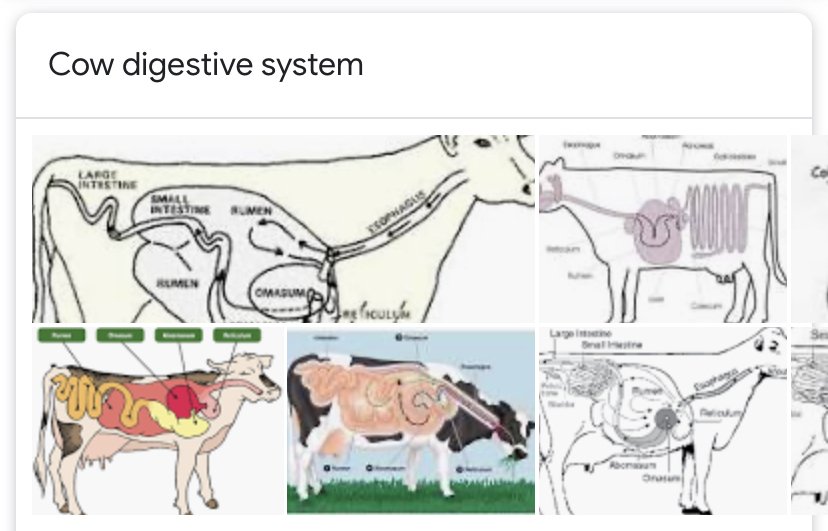
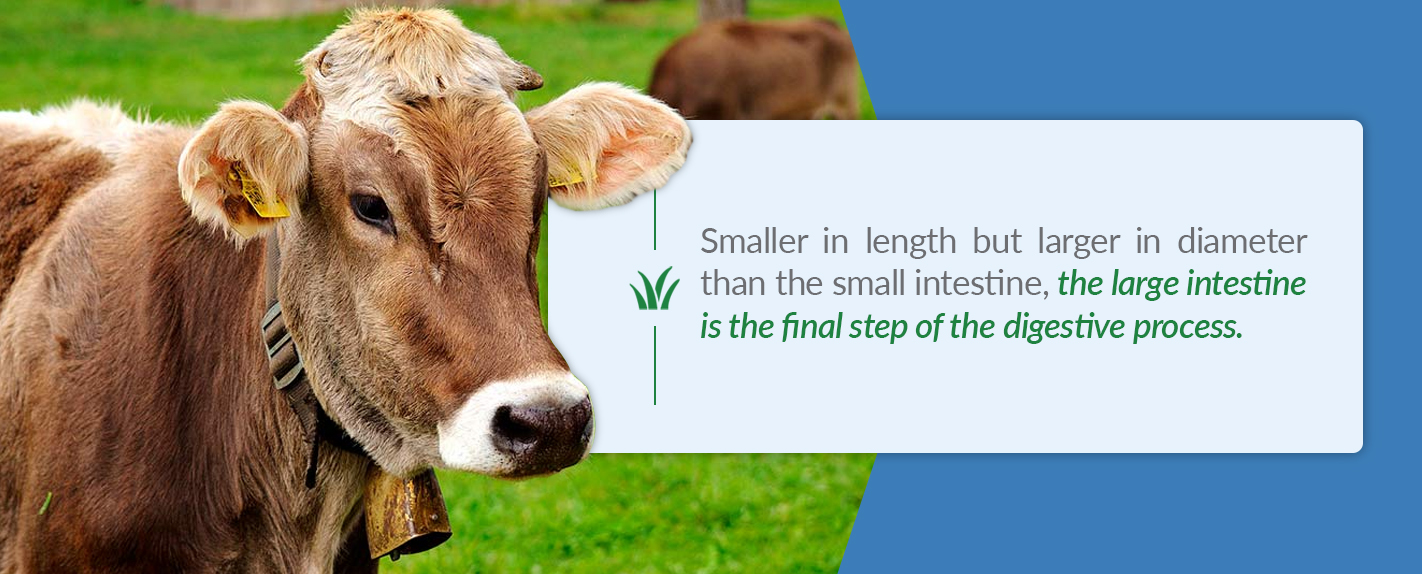

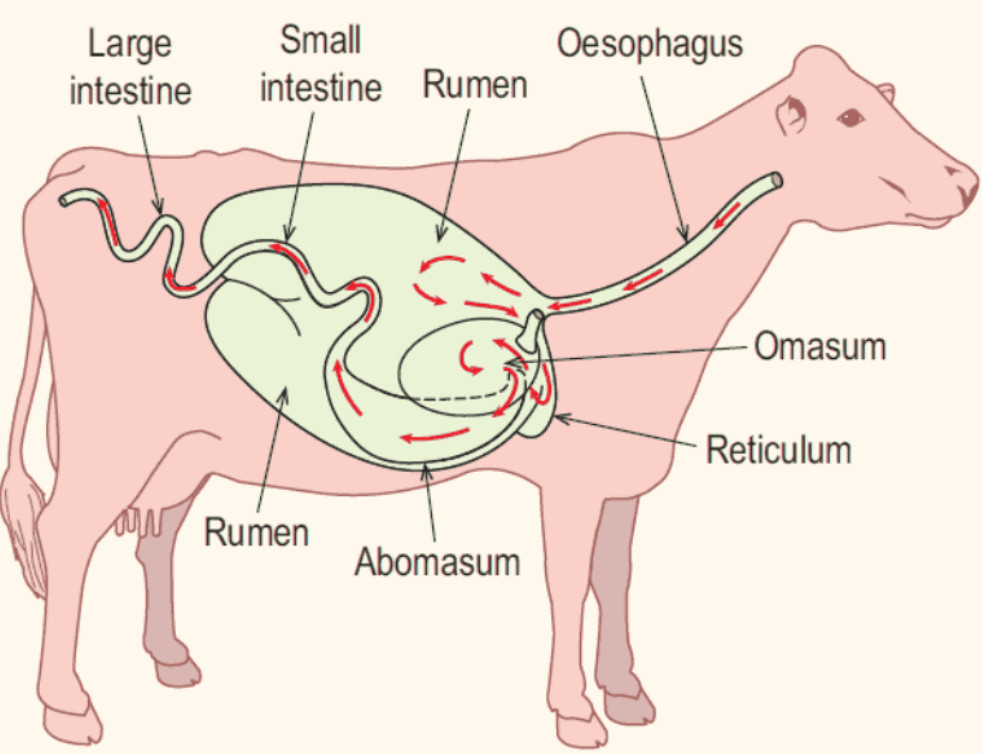


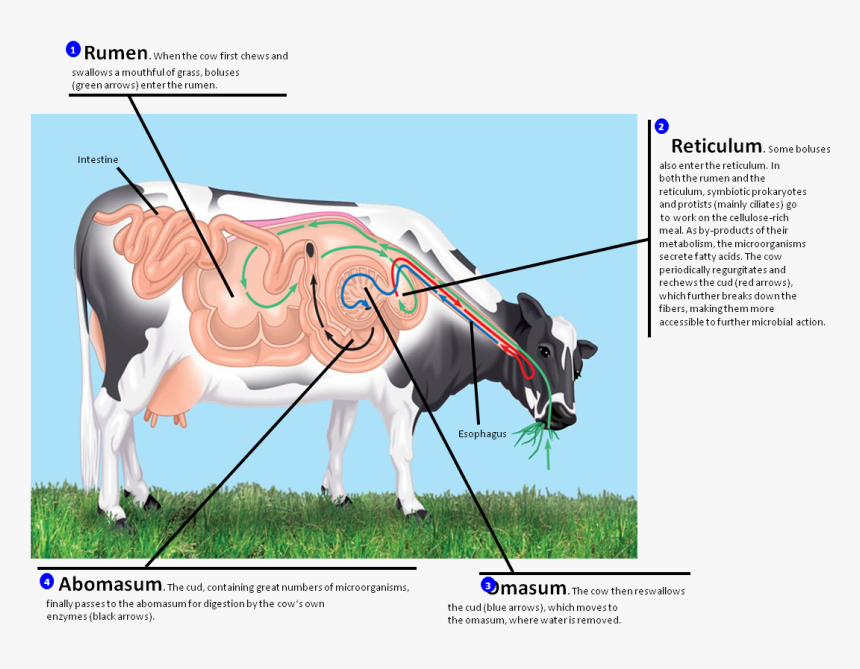





0 Response to "40 cow digestive system diagram"
Post a Comment